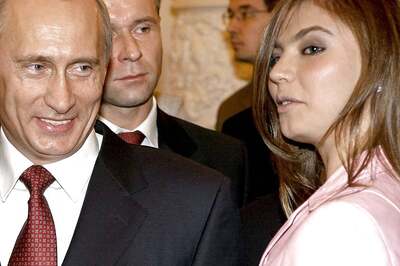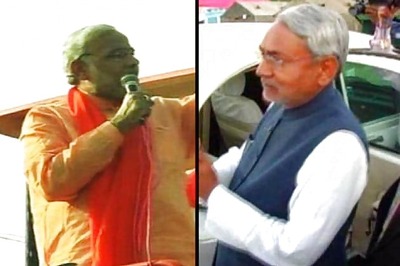
views
Saudi Arabia: For oil colossus Saudi Arabia, a shift to renewable energy is as much about preserving its international influence and maximising its revenues as saving the planet.
The world's leading oil exporter and custodian of more than 260 billion recoverable barrels, around a fifth of the world's stock, Saudi Arabia has long held sway over markets and governments with its ability to add or subtract crude at a turn of the spigots.
It has repeatedly said the world will for decades to come need the fossil fuels that in the short term are by far the most profitable.
Adding renewables to the mix, however, is both inevitable and pragmatic, analysts say, as soaring domestic energy use will burn huge amounts of fuel oil unless alternatives, such as solar power, can be used instead.
"It's really a preservation decision of using solar for domestic consumption and keeping your oil for more lucrative export markets," said Vahid Fotuhi, director, Middle East, of BP division BP Solar.
Industry officials have predicted a tripling in Saudi power consumption to around 120 gigawatts by 2032 from around 40 gigawatts last year.
That rate of expansion could consume all of the roughly 8 million barrels per day (bpd) Saudi Arabia produces.
"Right now, out of the 8 million barrels per day they produce, over 3 million barrels per day are consumed domestically, mainly for power generation. That figure is growing 8 percent per annum," said Fotuhi.
Unless it can develop renewables, Saudi Arabia could find itself with nothing to finance the national budget and with no spare capacity to be the world's supplier of last resort, a role that has long cemented its relationship with the biggest oil user the United States.
Back in September 2009, Saudi Oil Minister Ali al-Naimi had already set the highly ambitious goal of matching oil output with solar power. Around 8 million barrels of oil equivalent per day in solar energy would make it the world's leading solar power.
"In the same way we are an oil exporter, we can also be an exporter of power," Naimi said at the time King Abdullah University of Science and Technology (KAUST) was inaugurated in the Red Sea port of Jeddah.
The university in the kingdom's most liberal and outward-looking city symbolises Saudi Arabia's plans to diversify not just into alternative energy, but into a knowledge-based economy.
In Dhahran, a major administrative centre for the Saudi oil industry and home to state oil company Saudi Aramco, the King Fahd University of Petroleum and Minerals (KFUPM) is also working away at similar problems.
Its enthusiastic students see the kingdom making leaps forward, even though there are technological problems to overcome.
"I think Saudi is moving fast towards being a leader in solar energy," said Majed Lenjawi, an engineering student at KFUPM.




















Comments
0 comment